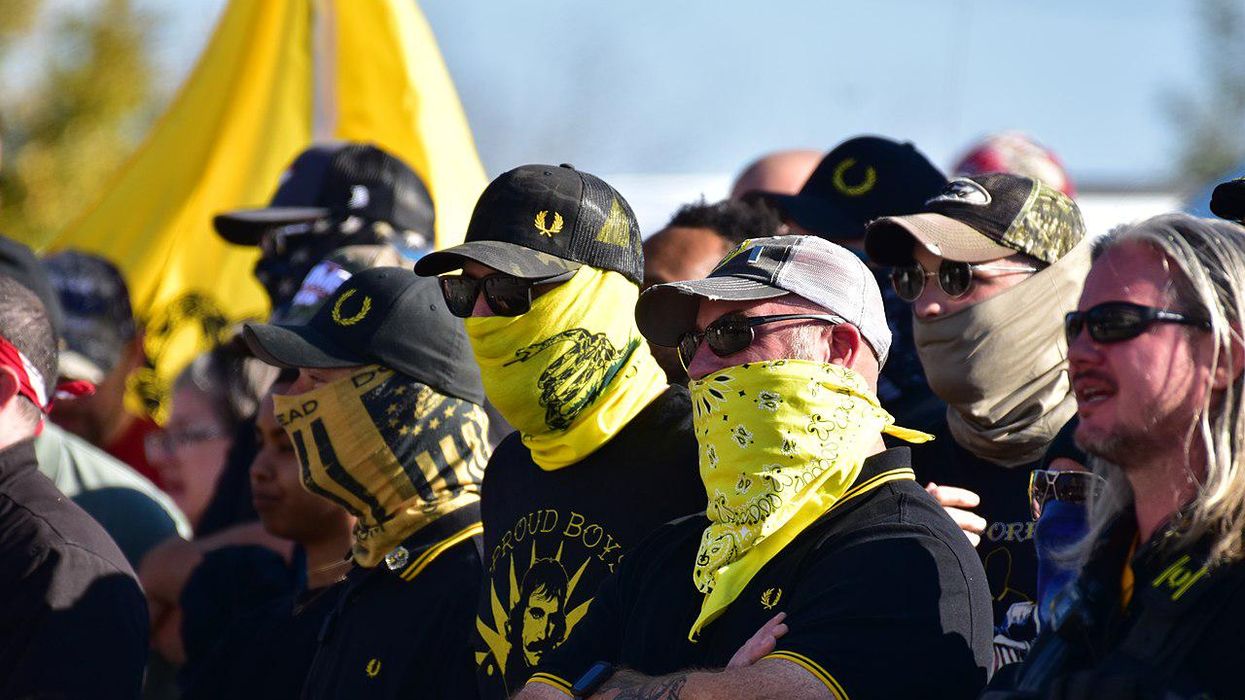A psychologist explains why ‘collective narcissism’ is fueling our national crisis

Members of the Proud Boys at a protest in Raleigh, North Carolina in November 2020, Wikimedia Commons
November 10, 2021 | 04:25PM ETFrontpage news and politics
The term "tribalist" is often used to describe the bitter political divisions that have been plaguing the United States. But psychologist Scott Barry Kaufman, in a recent think piece for The Atlantic, argues that what is troubling the U.S. and other countries politically isn't "simply tribalism," but "collective narcissism" — which, as Kaufman sees it, is a much worse problem.
"Humans are inherently tribal, and that's not necessarily a bad thing," Kaufman writes. "Having a healthy social identity can have an immensely positive impact on well-being. Collective narcissists, though, are often more focused on out-group prejudice than in-group loyalty. In its most extreme form, group narcissism can fuel political radicalism and potentially even violence. But in everyday settings, too, it can keep groups from listening to one another, and lead them to reduce people on the 'other side' to one-dimensional characters."
Historically, there have been plenty of people in the U.S. who had strong political differences yet got along on a personal level. The late House Speaker Tip O'Neill was a liberal Democrat who had a cordial, friendly relationship with President Ronald Reagan during the 1980s even though they had plenty of political disagreements; veteran Democratic strategist James Carville is married to right-wing political consultant Mary Matalin, a former Republican who became a registered Libertarian in 2016. And the hosts of MSNBC's "Morning Joe," Never Trump conservative Joe Scarborough (a former GOP congressman) and liberal Mika Brzezinski are married; they have their share of political debates on the air but keep them respectful.
Similarly, President Joe Biden, a centrist Democrat, has often bragged about his ability to get things done with the late conservative GOP Sen. John McCain when they were both serving in the U.S. Senate.
But with collective narcissism, as Kaufman explains in his article, the mentality becomes a raging hatred for the "other side." And collective narcissists are also likely to turn against people within their group who they view as impure.
"Collective narcissists are hypervigilant about 'enemies within' — members who, in their opinion, reflect negatively on the group," Kaufman explains. "And ironically, some studies have suggested that collective narcissists are actually more likely to leave their group for personal gain, and to use in-group members as tools to advance their own goals."
According to Kaufman, it isn't uncommon for collective narcissists to act out of insecurity. And they can be drawn toward political populism:
Collective narcissism can be found anywhere on the political spectrum, left or right, but it seems to be particularly alluring to populists. National group narcissism has been linked to support for populist parties and politicians around the world. One study found that collective narcissism was the second-strongest predictor (after partisanship) of voting for Donald Trump in the 2016 U.S. presidential election. It was also associated with support for Trump's followers attacking the Capitol, and support for Trump staying in power using undemocratic means. (A longitudinal analysis even found that group narcissism uniquely predicted growth of conspiracy thinking over the course of the 2016 presidential campaign.) Group narcissism was also found to be linked to pro-Brexit voting in the United Kingdom, anti-environmentalism in Poland, and negative attitudes toward the EU in Hungary.